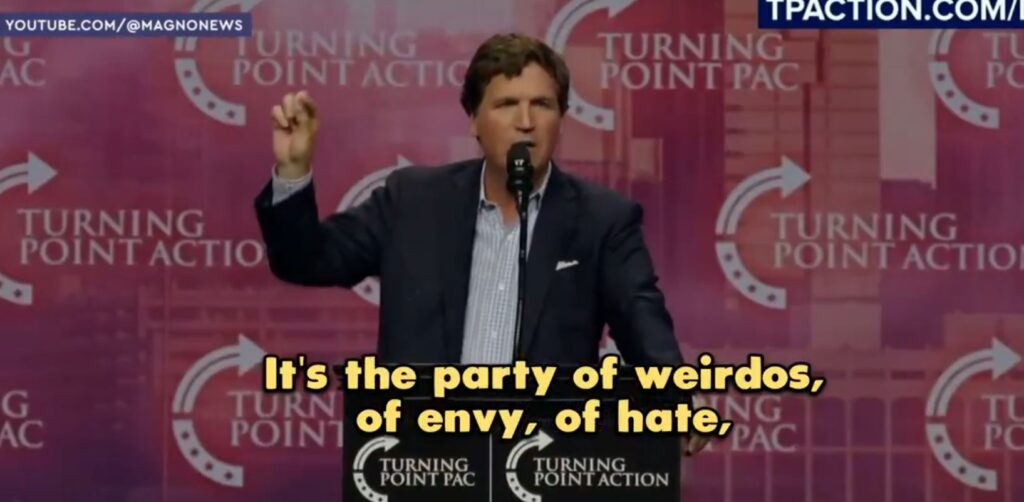On October 23, 2024, President Trump hosted a significant rally at the Gas South Arena in Duluth, Georgia, attracting a substantial crowd energized by prominent speakers such as Tucker Carlson, Tulsi Gabbard, and Robert Kennedy Jr. The event, sponsored by Turning Point USA (TPUSA), served as a platform for these figures to address pressing political issues and galvanize support for Trump’s 2024 presidential campaign. Carlson’s speech, in particular, struck a chord with attendees, culminating in a standing ovation for his impassioned defense of the everyday American. The rally highlighted the growing discontent among certain voter demographics with the current political landscape, particularly regarding the Democratic Party.
During his address, Tucker Carlson passionately articulated his view that the narrative Americans tell themselves about their society has fundamentally changed. He argued that ordinary citizens no longer align with the Democratic Party, which he characterized as emblematic of a “machine” indifferent to individual merit, focusing solely on the collective. Carlson painted the Democrats as a coalition of “weirdos,” fostering feelings of envy and resentment rather than creativity. He contended that the party has lost touch with its constituents and lacks the moral authority to govern, asserting that their legitimacy is rooted in the consent of the governed—a consent he believes they no longer possess.
Carlson’s remarks took a provocative turn as he decried the influx of undocumented immigrants into the United States, particularly criticizing the government for providing substantial welfare benefits to those who do not contribute to society while neglecting American citizens. He considered this situation an “insult” and a historical “crime” against the fabric of American democracy. His rhetoric resonated with the audience, reflecting broader frustrations among many supporters about immigration policies that they believe undermine the social contract.
In addition to immigration issues, Carlson addressed the perceived cultural decimation inflicted by the Democratic establishment. He lamented the erasure of American history, specifically referencing the destruction of statues commemorating ancestors who sacrificed for the country. He portrayed this act as an attack on American values and indicated that the current political climate has disrespected both the living and the dead. His comments seemed to rally the crowd around a shared sense of grievance, emphasizing the impact of progressive ideologies on communal identity.
The rally served as more than just a political gathering; it was a manifestation of collective frustration with the current administration’s policies. Carlson’s speech was a clarion call to those who feel marginalized and insulted by contemporary political discourse, encouraging them to recognize their strength as a unified majority. He challenged attendees to reconsider their perceptions of societal dynamics, urging them to stand up against what he sees as pervasive cultural and political hostility.
Ultimately, Carlson’s emotive address marked a significant moment at the rally, reflecting the sentiments of many supporters as they prepared for the upcoming election. He emphasized the need for a resurgence of traditional American values and a rejection of the current status quo that they believe is detrimental to the nation’s future. The rally highlighted not only Trump’s appeal but also the larger discontent brewing within a segment of the American populace, showcasing a determined commitment to reclaiming what they see as an eroding American identity.

